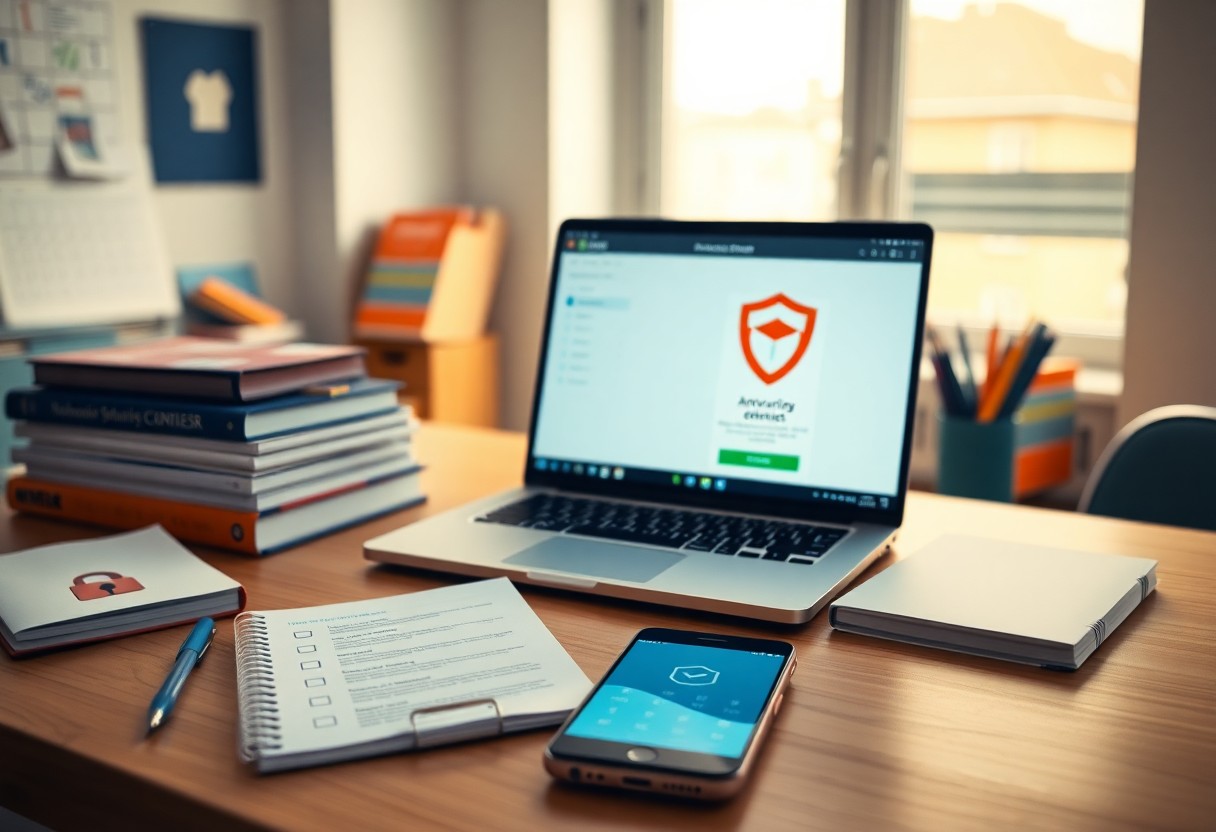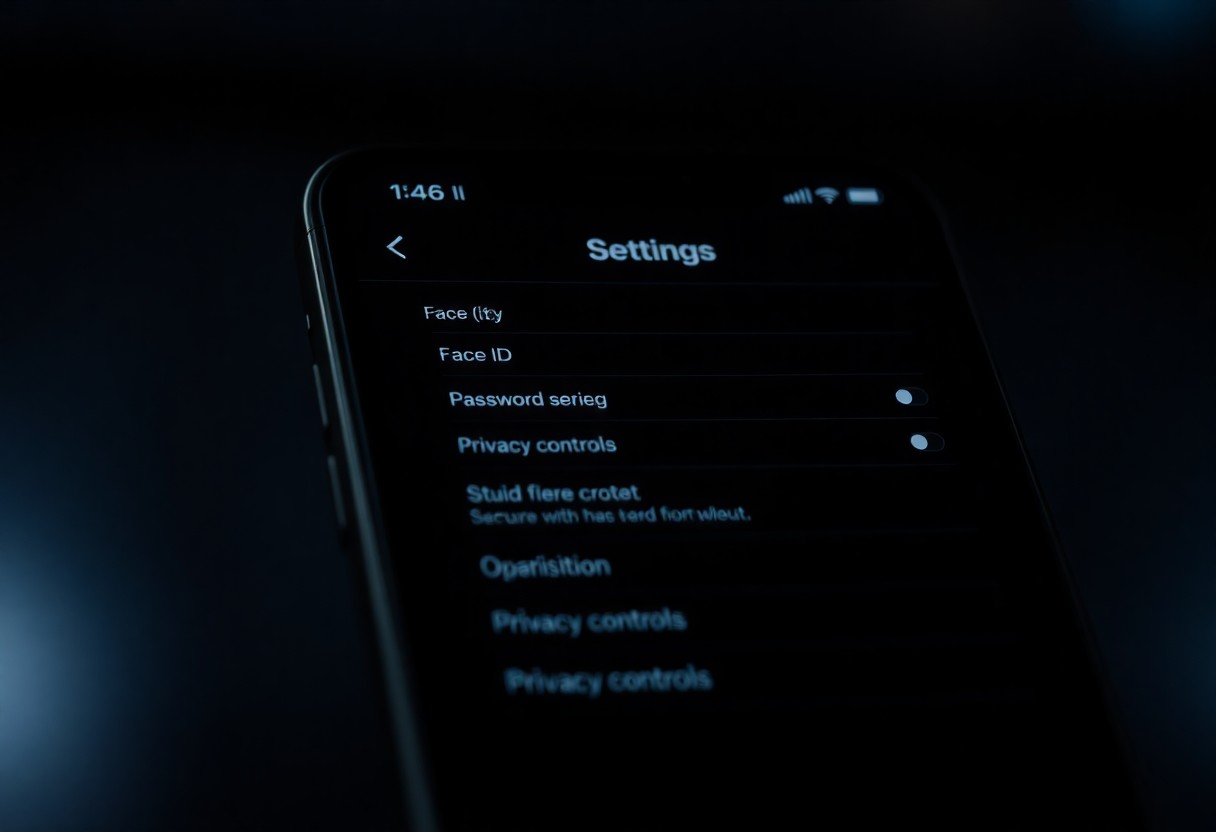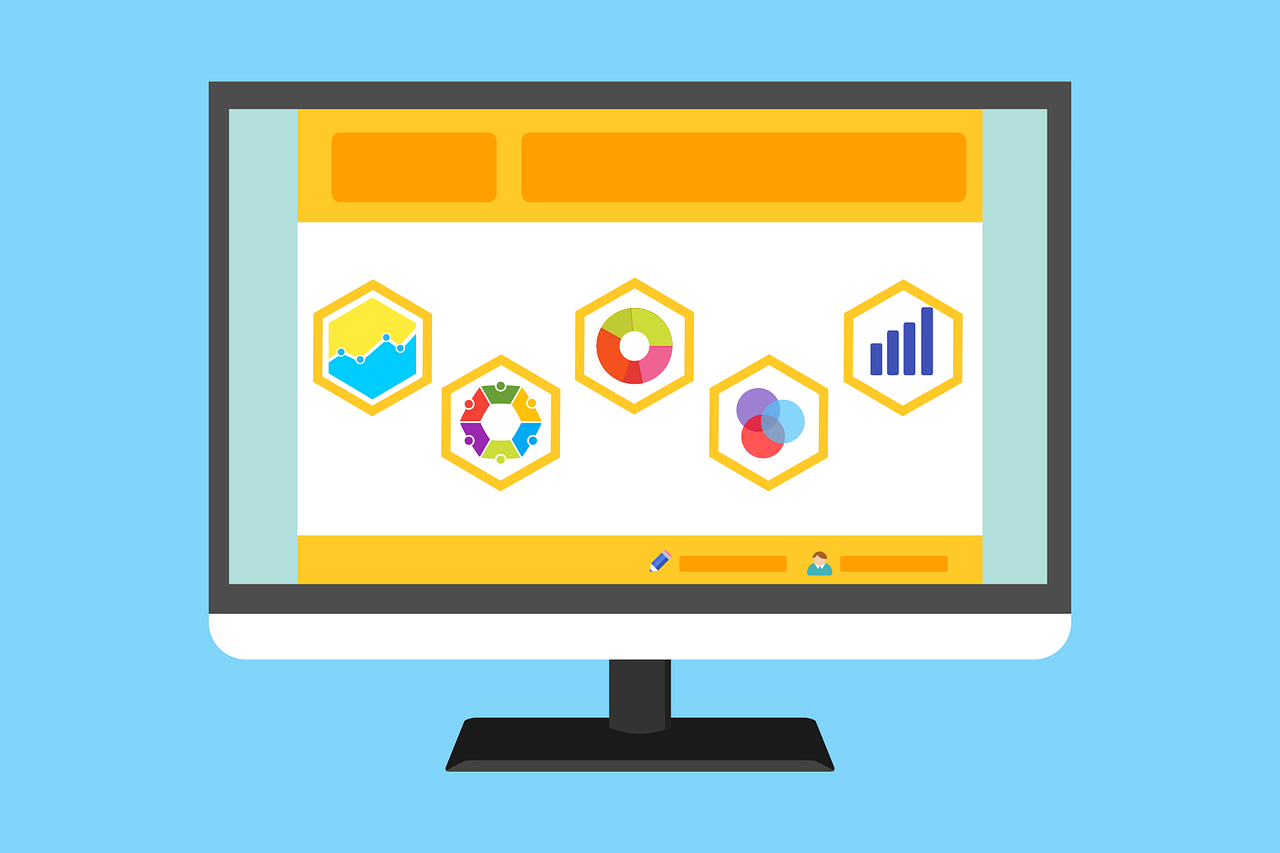It’s imperative to protect your digital life as a student, and having the right antivirus and security tools can make a significant difference. With increasing online threats, your personal information and academic work can be at risk. Choosing reliable software not only helps in detecting malware and viruses but also shields you from phishing attempts, ensuring your online experience is safe and secure. In this blog post, you’ll discover the best antivirus and security tools tailored for your needs as a student, so you can focus on your studies without worrying about cyber threats.
Key Takeaways:
- Prioritize free antivirus solutions that offer robust protection without sacrificing system performance, such as Avast or Bitdefender.
- Consider comprehensive security suites that include features like firewall protection, email scanning, and VPN services for added security beyond just virus protection.
- Regularly update software to ensure the latest security patches and virus definitions are applied, enhancing overall device security.
Safeguarding Academic Success with Top Antivirus Programs
Choosing the right antivirus program not only protects your devices from malware but also secures your academic achievements. With increasing threats to students’ cybersecurity, implementing reliable antivirus software acts as a shield against data breaches, identity theft, and even ransomware attacks that could jeopardize your hard-earned work. By investing in effective solutions, you ensure that your focus remains on studies instead of worrying about potential cybersecurity threats.
Leading Antivirus Solutions for Students
Several antivirus software options stand out for their reliability and effectiveness in safeguarding students’ digital environments. Programs like Norton, Bitdefender, and Kaspersky provide comprehensive security features tailored to combat various online threats. Their user-friendly interfaces also cater to students, making installation and management hassle-free, allowing you to prioritize academics over technical concerns.
Features to Prioritize for Optimal Protection
Not all antivirus programs are created equal; selecting one with the best features enhances your security. Look for software that includes real-time protection, automatic updates, and multi-device support, as these elements are crucial for keeping your data safe across multiple devices. Additionally, consider programs offering VPN services for secure internet browsing, especially useful for accessing public Wi-Fi networks in libraries or cafes.
A well-rounded antivirus solution does more than just run scans; it actively protects your online identity. Prioritizing features such as web protection helps you avoid malicious sites that could lead to phishing scams. Alongside firewalls that monitor incoming and outgoing traffic, you create a multifaceted defense strategy. Emphasizing anti-malware capabilities and user-friendly design ensures that you can easily navigate security settings and software updates, maintaining your academic focus and protecting your sensitive information effectively.
Essential Security Tools Beyond Antivirus
Antivirus software is just one piece of the larger security puzzle. To effectively protect your personal data and online presence, a combination of necessary security tools is necessary. From managing your passwords to ensuring privacy while browsing, leveraging these tools can help create a comprehensive defense against digital threats.
Password Managers: Fortifying Your Credentials
Password managers are invaluable for safeguarding your credentials. With the average person needing to remember dozens of passwords, a password manager securely stores them, generates strong, unique passwords, and automatically fills them in for you. This not only enhances your security by reducing the chances of recycling weak passwords but also simplifies your login process across various academic platforms and online resources.
VPN Services: Ensuring Privacy and Unrestricted Access
Utilizing a VPN (Virtual Private Network) grants you a secure connection to the internet, effectively hiding your IP address and encrypting your online activities. This becomes particularly relevant when using public Wi-Fi networks, which are notorious for being targets of hackers. VPNs provide an added layer of protection, ensuring that your browsing data remains private, and they enable access to geographically restricted content, such as scholarly articles unavailable in your region. With some VPNs, you can enjoy fast, secure connections while studying or conducting research, removing barriers to necessary academic resources.
Using a VPN also helps maintain anonymity while conducting sensitive research or accessing platforms that may impose restrictions. Providers like NordVPN and ExpressVPN offer student discounts, adding affordability to their already robust features. By encrypting your internet traffic, privacy is significantly enhanced, and security risks associated with data leaks or breaches are greatly reduced, allowing you to focus on your academic success without the constant worry of cyber threats.
Mobile Security: Protecting Your Devices on the Go
Mobile devices are constantly exposed to a myriad of threats as you navigate through school life and daily responsibilities. Whether you’re accessing sensitive information over public Wi-Fi or downloading various applications for productivity, securing your mobile device is important. Utilizing mobile security tools and practices ensures that your personal data remains protected against cyber theft and unauthorized access while you’re on the move.
Best Mobile Antivirus Apps for Students
Your smartphone is an extension of yourself, so choosing the right mobile antivirus app is fundamental. Top contenders like Avast Mobile Security and Bitdefender Mobile Security provide robust protection features including malware scanning, anti-theft measures, and app locking capabilities. These apps are optimized for minimal battery usage, ensuring that while your device remains secure, your functionality is not compromised.
Device Management: Protecting Your Valuable Information
Effective device management involves not just antivirus software but also practices that safeguard your personal information. Regularly updating your operating system and apps, using strong but memorable passwords, and enabling two-factor authentication can significantly enhance your security posture. It’s wise to back up your data frequently and utilize encryption features to add another layer of protection to sensitive files.
Investing time and effort into device management pays dividends in preventing data breaches. For example, employing a reputable password manager app, such as LastPass or 1Password, helps you create and store complex passwords securely. Imagine losing all your notes or assignments due to a cyber attack—you’ll be glad you took proactive steps to secure your devices and manage your information effectively. By following smart practices, you can fortify your digital life against potential threats and maintain a smooth academic experience.
The Role of Cyber Hygiene in Student Life
Practicing good cyber hygiene is imperative for you as a student navigating the digital landscape. Regularly updating software, using strong, unique passwords, and being cautious when sharing personal information online can dramatically reduce your risk of falling victim to cyberattacks. By developing healthy online habits, you create a safer academic environment and ensure that your sensitive information, such as grades and financial details, remains protected from prying eyes.
Effective Practices for Online Safety
Implementing effective practices for online safety involves using multi-factor authentication, regularly backing up your data, and being mindful of the information you share on social media. Secure your Wi-Fi network with a strong password and ensure that you log out of accounts when finished, especially on shared devices. Simple steps like these can significantly reduce your exposure to potential threats.
Identifying and Avoiding Common Digital Threats
Identifying and avoiding common digital threats is fundamental to maintaining your cybersecurity. Phishing scams, which often arrive via email or text, can trick you into providing personal information or downloading harmful software. Always scrutinize unexpected messages, especially those urging immediate action or requesting sensitive data. Be sure to look for misspellings or unusual sender addresses as red flags.
Many digital threats lurk in everyday interactions, especially in academic settings where you exchange files. Phishing remains a persistent issue; for instance, the FBI reported that phishing attacks soared by 110% from 2019 to 2020. Malicious links can be embedded in seemingly legitimate emails or documents, leading to harmful websites designed to capture your information. Additionally, unsecured public Wi-Fi networks expose you to risks, making it easier for hackers to intercept your data. Staying informed about these threats and being skeptical of unexpected communications can significantly bolster your defenses against cybersecurity breaches.
Balancing Convenience and Security: Finding the Right Tools
Finding the right balance between convenience and security is vital for students juggling multiple commitments. Optimal tools should streamline your workflow without compromising safety. For instance, choosing a password manager that integrates seamlessly with your browser helps you manage unique passwords effortlessly, reducing the temptation to reuse weak passwords while ensuring robust encryption for your sensitive information. Always seek tools that provide flexible features catering to your lifestyle, allowing you to focus on your studies while keeping your data secure.
Integrating Security Tools into Daily Routines
Incorporating security tools into your daily routine requires minimal effort and intentional habits. Start by setting reminders to update your antivirus software and regularly back up important files using cloud storage with built-in security features. Adopting a consistent practice of using unique, complex passwords for various accounts enhances your online safety. Integrating these actions into your workflow can form a protective barrier that safeguards your academic work without significantly hindering your productivity.
Evaluating Cost-Effective Solutions for Students
Cost is a significant consideration for many students, yet several effective security tools cater to tight budgets. Look for free or student-discounted versions of leading antivirus software, such as Avast Free Antivirus or Bitdefender’s student offers. Additionally, many cloud storage solutions, like Google Drive or Dropbox, offer generous free tiers that include security features to protect your documents. These options provide vital security without breaking the bank, ensuring you stay protected as you focus on your studies.
A variety of cost-effective security solutions exist tailored specifically for students. Free antivirus programs, while not as comprehensive as premium versions, can provide adequate defense against most common threats. Additionally, consider utilizing open-source security solutions, which often come with no price tag but boast strong community support. Furthermore, many campuses provide free access to security tools or discounted software for enrolled students, making it easier than ever to obtain quality protection without straining your wallet. Exploring these avenues can help you maintain robust security throughout your academic journey.
Final Words
Summing up, selecting the right antivirus and security tools is crucial for protecting your devices and personal information as a student. You should prioritize software that offers comprehensive features, user-friendly interfaces, and regular updates to combat evolving threats. Look for solutions that fit your budget while providing the necessary security to safeguard your academic work and online presence. By making informed choices, you can enhance your digital safety and focus more on your studies.
FAQ
Q: Why is it important for students to have antivirus and security tools?
A: For students, utilizing antivirus and security tools is important to protect personal information, academic data, and devices from potential threats. With the increasing reliance on digital platforms for study and communication, cyber threats like malware, ransomware, and phishing attacks are prevalent. Implementing robust security measures not only protects against these risks but also helps ensure a safe online learning environment.
Q: What features should I look for in antivirus software tailored for students?
A: When identifying antivirus software, students should seek programs that offer real-time protection, automatic updates, and a user-friendly interface. Additional features like web protection against phishing sites, file encryption, and secure VPN services can enhance privacy during research and communication. Affordable plans or free versions may also be beneficial for students on a budget.
Q: Are there any free antivirus solutions that are effective for students?
A: Yes, there are several reliable free antivirus options that cater well to students. Programs like Avast Free Antivirus, AVG AntiVirus Free, and Bitdefender Antivirus Free Edition provide fundamental protection against malware and other threats without any cost. While they may lack some advanced features of paid versions, they offer adequate security for general student needs.



